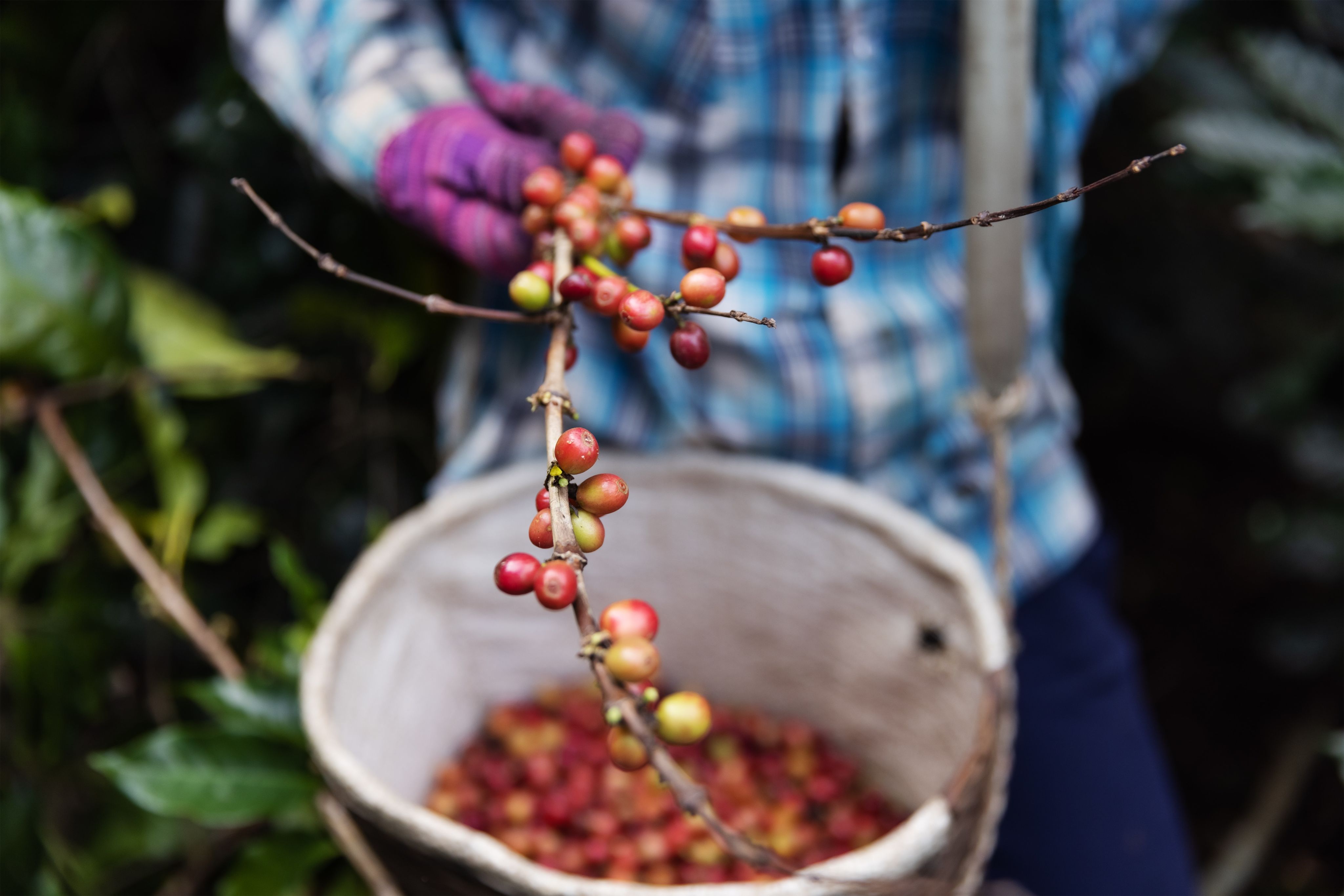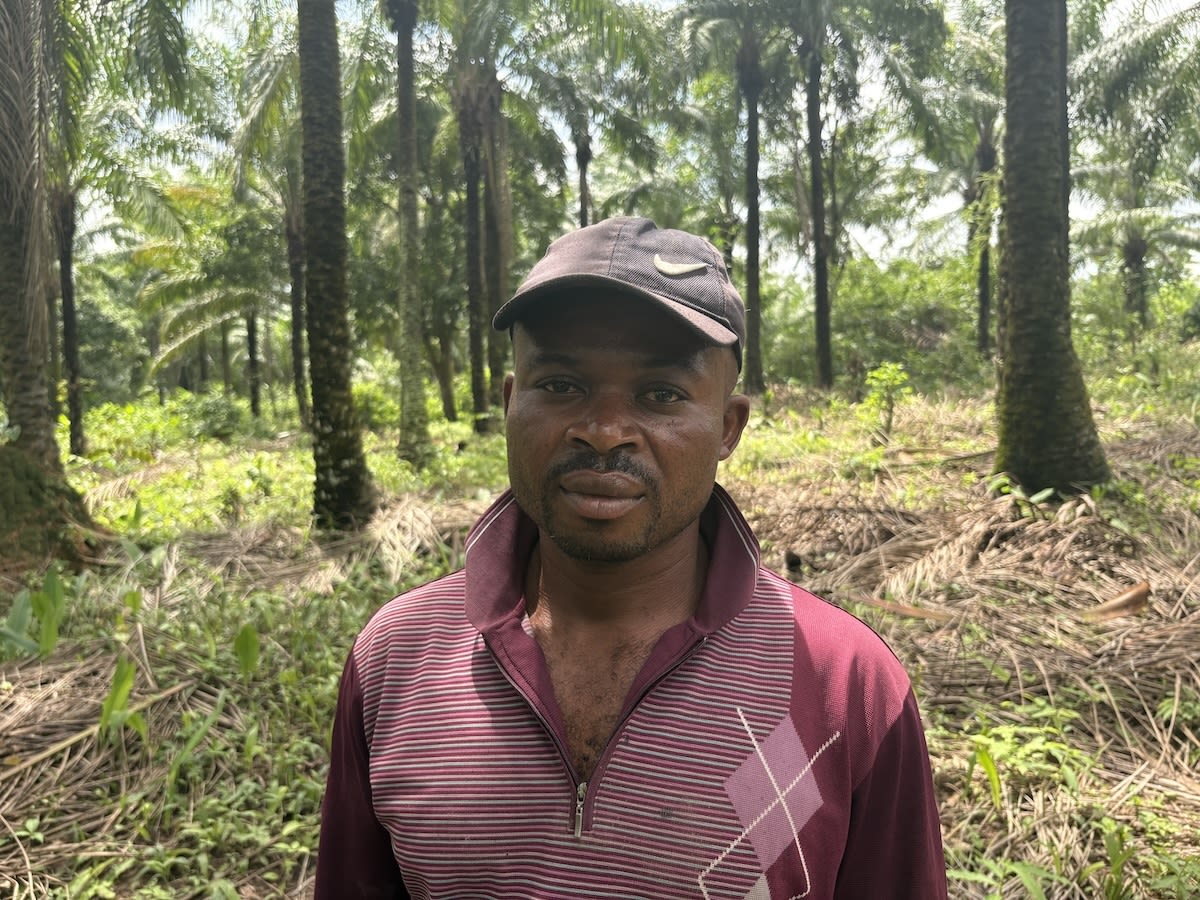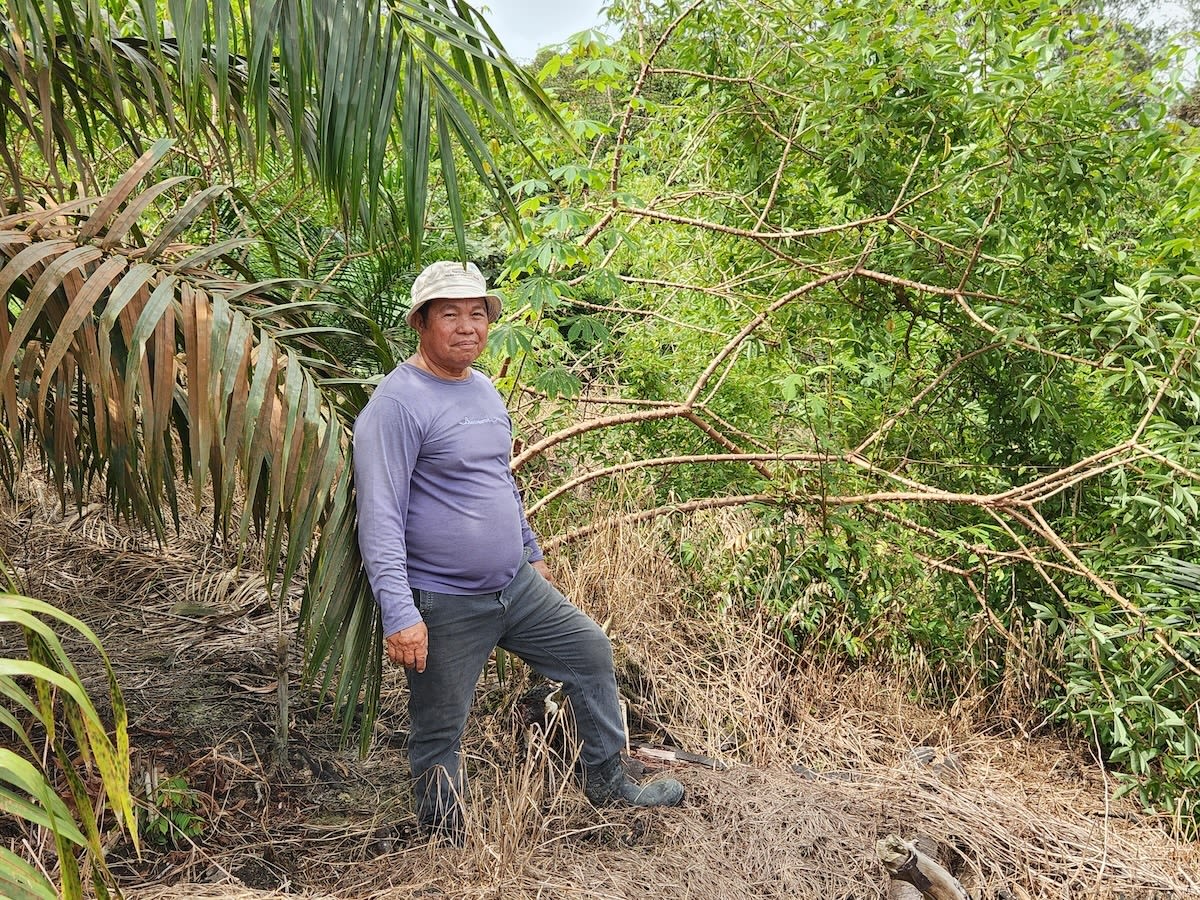SMALL FARMER ATLAS
PALM OIL

Over the course of the last 20 years, the production of palm oil has tripled - with nearly 75% of production destined for the food industry. Though palm oil is often depicted as an environmental catastrophe (which is largely true in the case of industrial-scale companies), small-scale production can be environmentally sustainable and lucrative for farming families. Roughly 30% of global palm oil is produced by three to five million small-scale farmers.
The Small Farmer Atlas explores the perceptions of small-scale farmers on a wide range of sustainability topics centered on three themes: prosperity, inclusivity and balance with nature. Small-scale oil palm farmers from Ghana, Indonesia and Malaysia are included in this report.
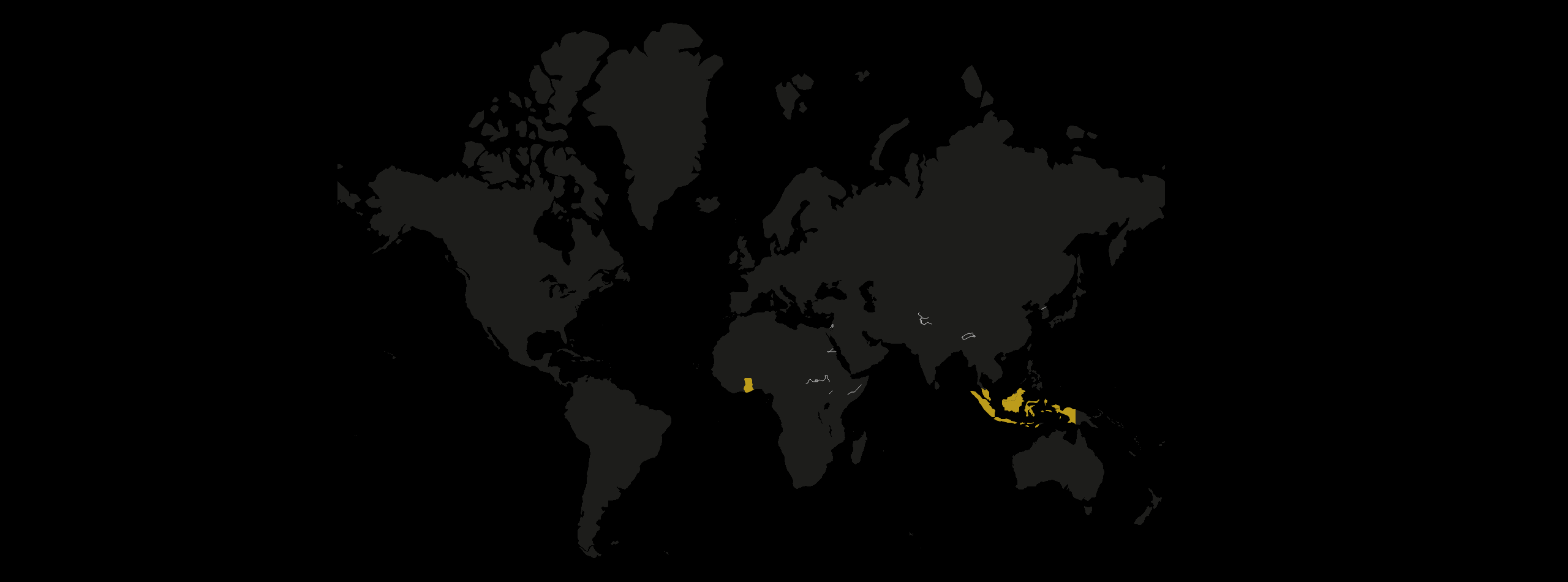
SMALL FARMER ATLAS
PERCEPTIONS on palm oil

Many small-scale farmers are attracted to growing oil palm for its high yield and potentially higher prices. Most oil palm producers in Indonesia, Malaysia, and Ghana see themselves as relatively well-off compared to the average farmer in their country. This shows in the overall perceptions. Women across all three countries largely have more negative perceptions than men about their ability to manage basic family needs through oil palm. This indicates that interventions tailored to women farmers’ specific needs are necessary.
PROSPERITY
Oil palm can be a lucrative crop for small-scale farmers and this is reflected in farmer perceptions, yet the sector is largely a buyer-driven supply chain that can leave farmers susceptible to price volatility.
INCLUSIVITY
Oil palm is seen as a sustainable investment for small-scale agriculture and there are a number of programmes, regulations and supporting schemes in place for farmers.
NATURE
Survey data shows that the majority of farmers in Malaysia and Indonesia do not currently face many environmental constraints in producing oil palm. In contrast, farmers in Ghana are particularly concerned about the ability to produce oil palm in harmony with nature, citing issues such as deteriorating soils, access to water, and the impact of climate change.
SMALL FARMER ATLAS
SUPPLY CHAIN
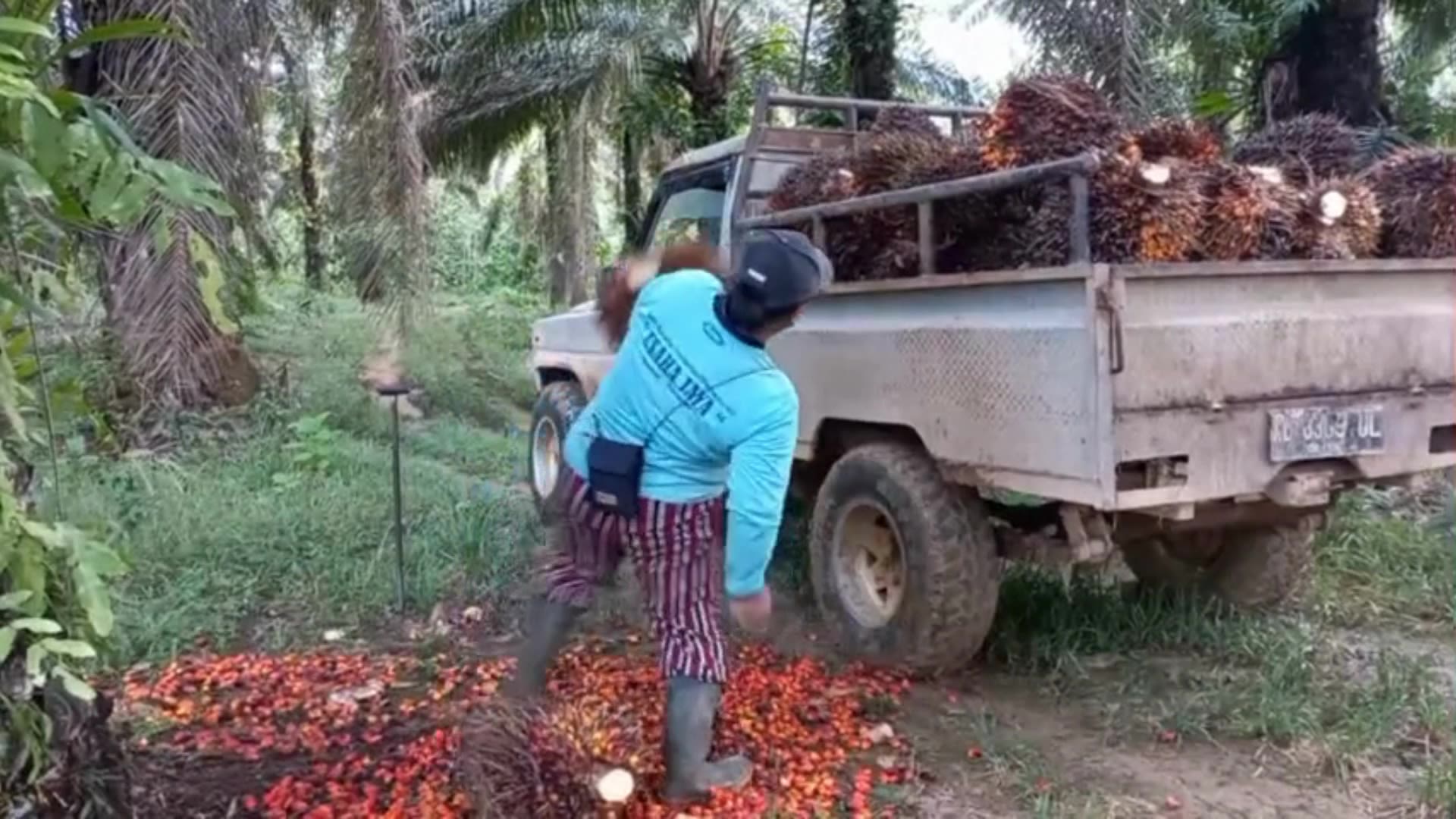
Even though palm oil is an increasingly lucrative industry, worth USD 282 billion in 2020, small-scale farmers only receive 6% of the value in the entire chain. In fact, the concept of “profit” may not be applicable to small-scale farmers. On the downstream end of the chain, fast-moving consumer goods and retailers capture 66% of the gross profits from embedded palm oil.
One growing use for palm oil is in the bioenergy market, where edible oils like palm oil and its by-products are used as an alternative to fossil fuels. In 2020, 23% of the global production of palm oil was used in biodiesel. As demand increases, sustainability will be a challenge and small-scale farmers – who produce sustainably – could be left out.
Ideally, a combination of private sector support, international trade policies and multi-stakeholder collaboration will improve household income, food security and well-being. The sector needs fair prices for farmers, for their livelihoods and for investments to ensure the long-term viability of their farms and environments.
SMALL FARMER ATLAS
3 QUESTIONS
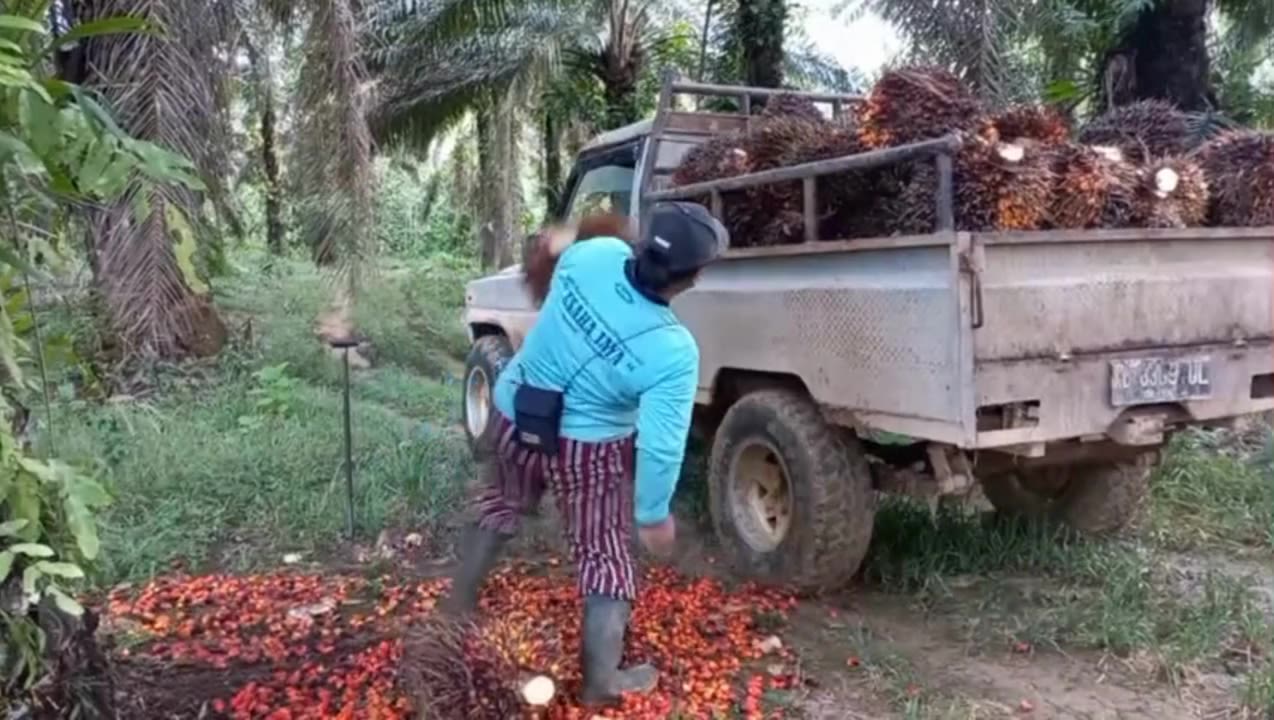
Though farmers in Ghana are able to earn a decent living with palm oil, they increasingly see negative effects from climate change on access to water and soil fertility.
In Indonesia, palm oil farmers are in a relatively better position than other farmers in the country with adequate income and access to resources they need to be better farmers. They did not see negative environmental effects at the time of this survey.
Farmers surveyed in Malaysia felt their income was better when compared to the average farmer in their country. They also had a positive perspective on access to what they need to succeed.
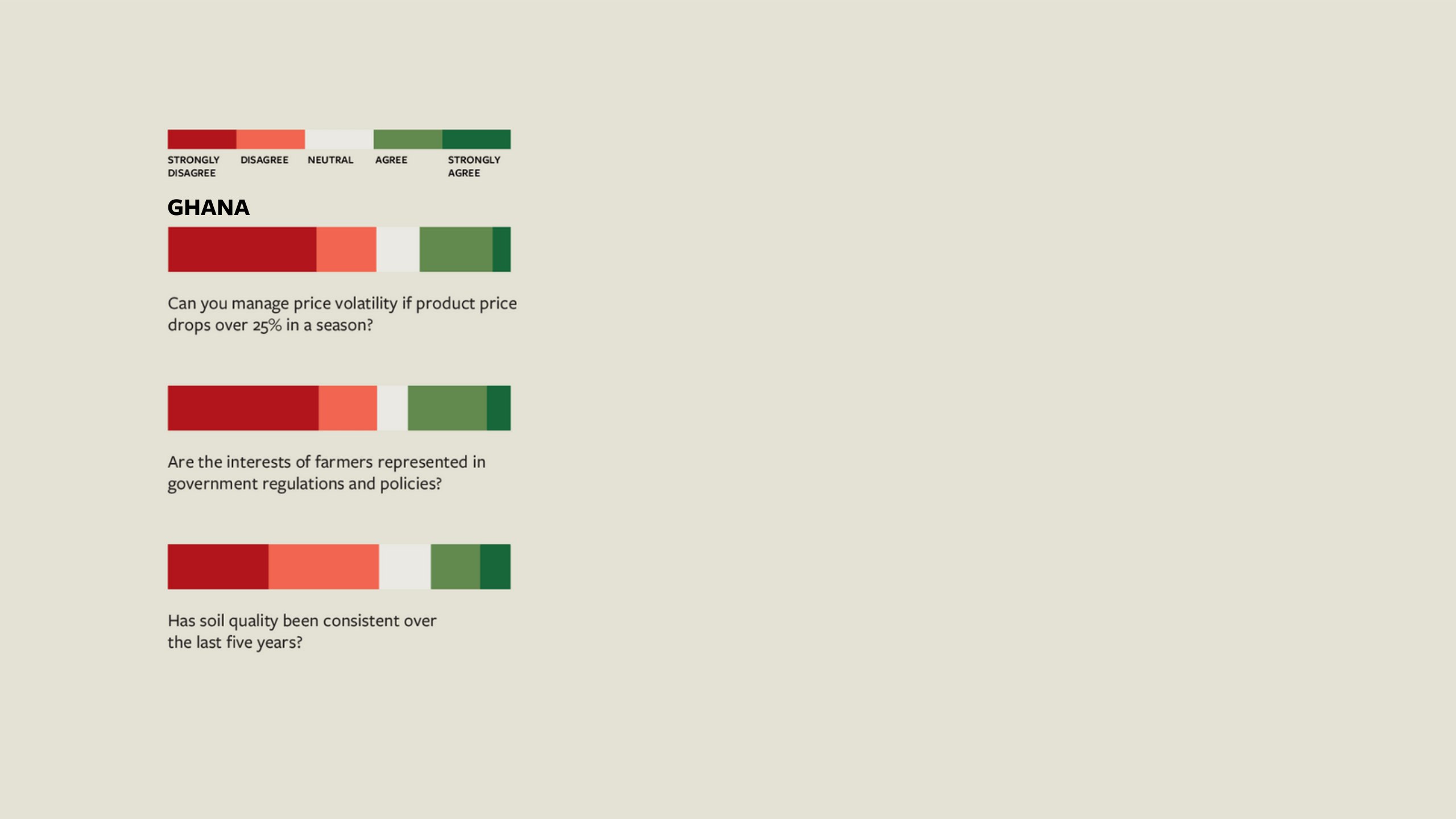
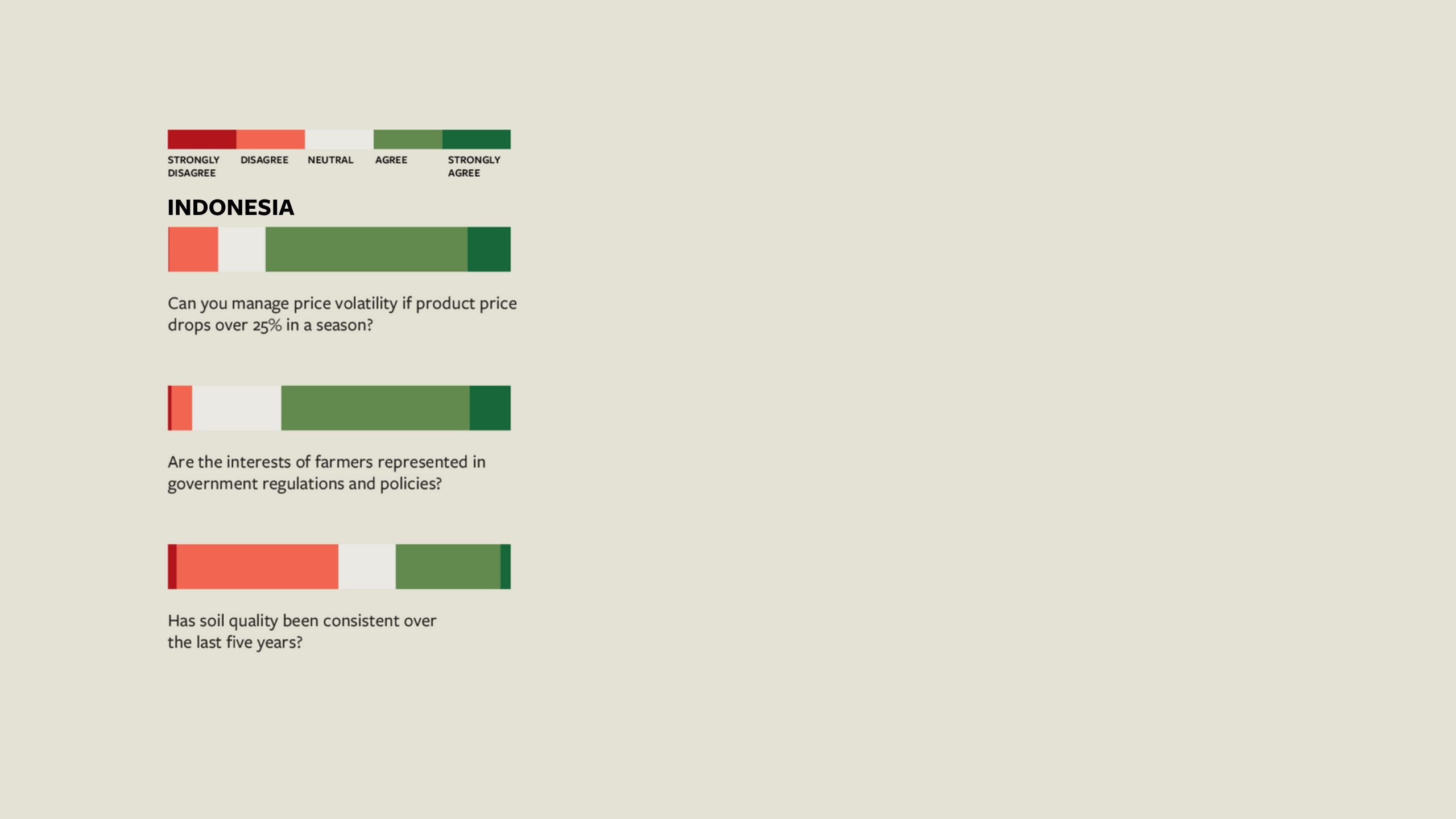
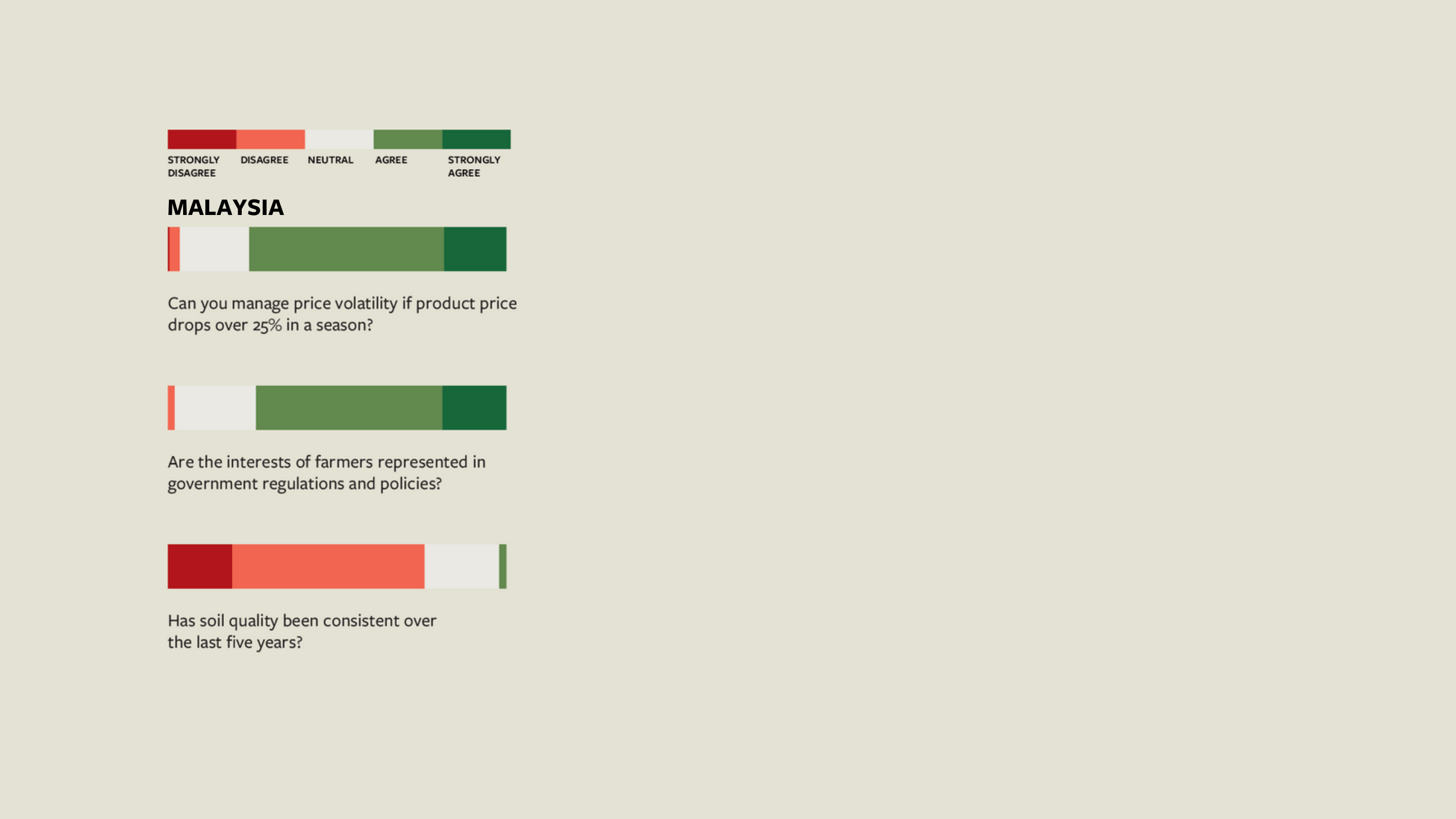
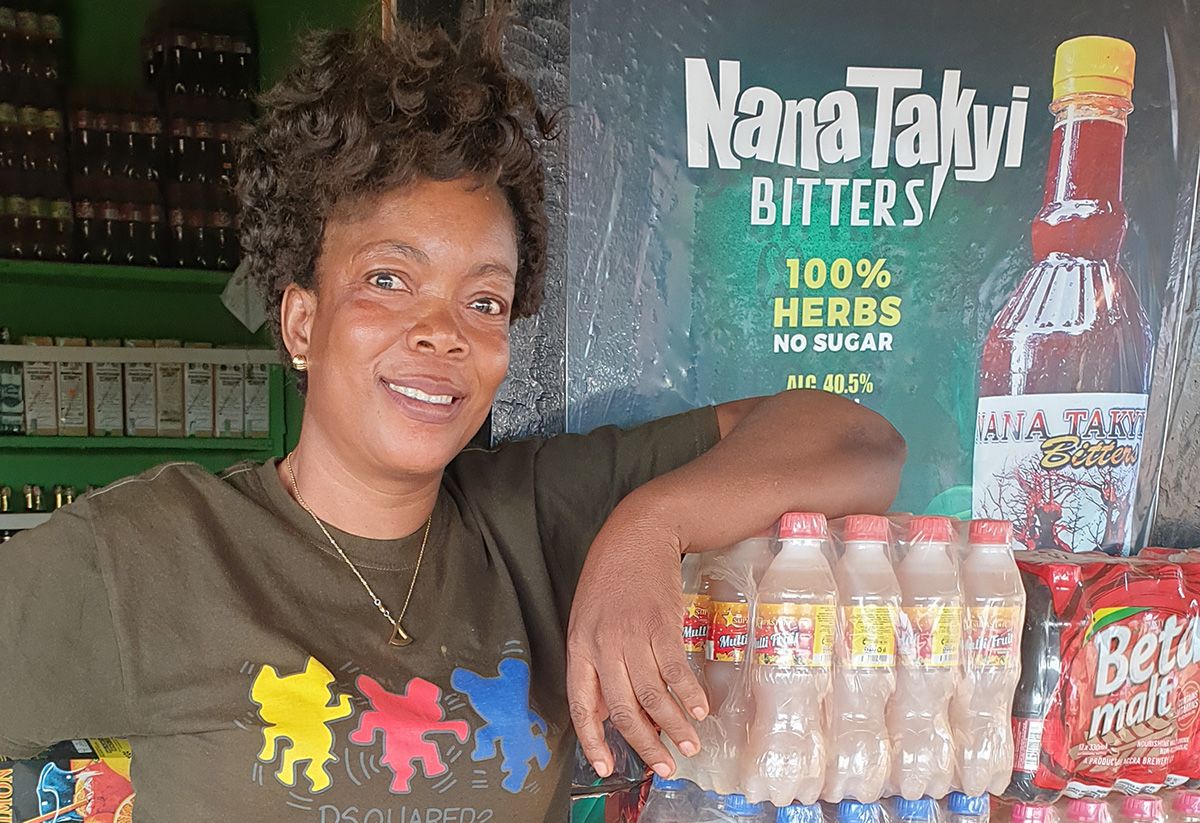
MEET SMALL-SCALE OIL PALM FARMERS
CREATING JOB OPPORTUNITIES FOR YOUNG PEOPLE: A JOURNEY INTO OIL PALM FARMING
After years of unsuccessful job hunting, Frank Brain turned to the oil palm farm he inherited from his parents. Training from the NISCOPS programme transformed his approach, improving yields and inspiring him to show other young people the promise of farming.
OIL PALM SMALLHOLDER EMBRACES SUSTAINABILITY IN MALAYSIA
For years, Henry Jelaman watched smallholder oil palm farmers near his workplace with interest. When his job as a crane operator became too demanding, he started his own oil palm farm in Sarawak, Malaysia.

Join the discussion
Looking for further insights and ideas or just want to share with others? Join the Small Farmer Atlas LinkedIn Group.
Download the PDF
The full Small Farmer Atlas goes into detail on that current state of sustainability from farmers' perspective.
Explore the data
This website represents a small portion of the data collected. Sign up to access the Data Portal and learn more.
